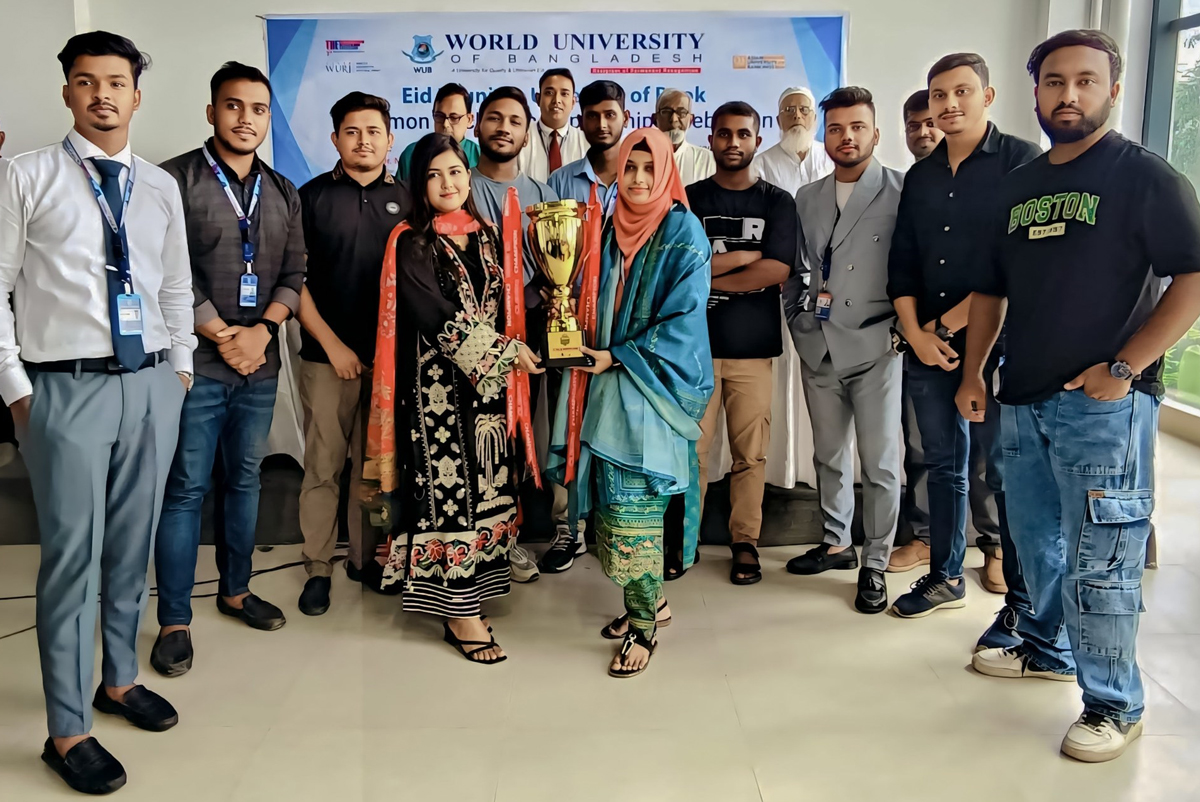Where Passion Meets Opportunity
At the Department of Civil Engineering, World University of Bangladesh, we believe that true innovation begins where passion meets opportunity. Our programs are designed to ignite curiosity, nurture talent, and transform aspiring minds into future leaders of the civil engineering industry.

About Civil Engineering
The field of Civil Engineering is probably the broadest of all the Engineering fields, dealing with the creation, improvement, and protection of the communal environment — providing facilities for living, industry, and transportation, including large buildings, roads, bridges, canals, railroads, airports, water-supply systems, dams, irrigation, harbors, docks, aqueducts, tunnels, and other engineered constructions.
Like any other developing country, Bangladesh needs extensive infrastructure development. Since independence, numerous government and non-government projects have engaged thousands of civil engineers — and the demand continues to grow. The Department of Civil Engineering at World University of Bangladesh offers a comprehensive 4-year undergraduate program aligned with national needs and global standards, featuring Outcome-Based Education (OBE).
Vision and Mission
Building Leaders for National Infrastructure Development
Our Vision
To be an internationally renowned Civil Engineering Department for producing leader of the leaders who will contribute to economic emancipation as well as national development in the field of Civil Engineering.
Our Mission
To advance engineering knowledge and learning through utilitarian education and research in the pursuit of fulfilling the aspiration of the University and the Nation.
Program Educational Objectives (PEOs) & Learning Outcomes (PLOs)
Our curriculum is designed to produce well-rounded, industry-ready civil engineers with strong ethical and technical foundations.
Program Educational Objectives (PEOs)
- PEO-1: Successfully apply their learned skills throughout their professional pursuits.
- PEO-2: Have enthusiasm and aptitude to continuously pursue learning and professional development.
- PEO-3: Have the ability to communicate and work well as individuals or on teams that include engineers and colleagues from other disciplines.
- PEO-4: Are recognized as qualified professionals with high ethical standards.
Program Learning Outcomes (PLOs)
| Code | Description |
|---|---|
| PLO-1 | Apply knowledge of mathematics, science and engineering. |
| PLO-2 | Identify, formulate, research and analyze complex engineering problems... |
| PLO-3 | Design solutions considering public health, safety, and environment. |
| PLO-4 | Investigate problems with experimental design and data interpretation. |
| PLO-5 | Use modern engineering tools with understanding of limitations. |
| PLO-6 | Assess societal, health, safety, and cultural issues in engineering practice. |
| PLO-7 | Identify global, economic, environmental impact of engineering solutions. |
| PLO-8 | Identify professional and ethical responsibilities. |
| PLO-9 | Function effectively in multidisciplinary teams. |
| PLO-10 | Communicate effectively with engineering community and society. |
| PLO-11 | Demonstrate knowledge of project management and financing. |
| PLO-12 | Engage in independent, life-long learning. |
Laboratory Facilities
Laboratory facilities are a core component of any civil engineering program because they transform theoretical knowledge into practical understanding. The Civil Engineering Department of WUB is well-equipped with modern laboratories and teaching aids.
Structural Mechanics & Materials Lab
Study stress, strain, deformation; test strength of beams, columns, and trusses under load.
Engineering Materials Lab
Examine properties of cement, concrete, steel, and aggregates; ensure material quality.
Transportation Engineering Lab
Test bitumen, asphalt, aggregates; analyze traffic flow and pavement design.
Geotechnical Engineering Lab
Determine soil properties (compaction, shear strength, permeability); evaluate foundation stability.
Environmental Engineering Lab
Test water and wastewater quality parameters.
Hydraulics Lab
Demonstrate fluid mechanics principles; study flow in pipes, channels, and machines.
Surveying Lab
Train in land measurement using levels, theodolites, total stations; prepare maps and layouts.
Drawing Lab
Develop engineering drawing and drafting skills; practice AutoCAD and manual design.
Computer Programming Lab
Teach programming and software like AutoCAD, STAAD, SAP, ETABS, and MATLAB for analysis.
